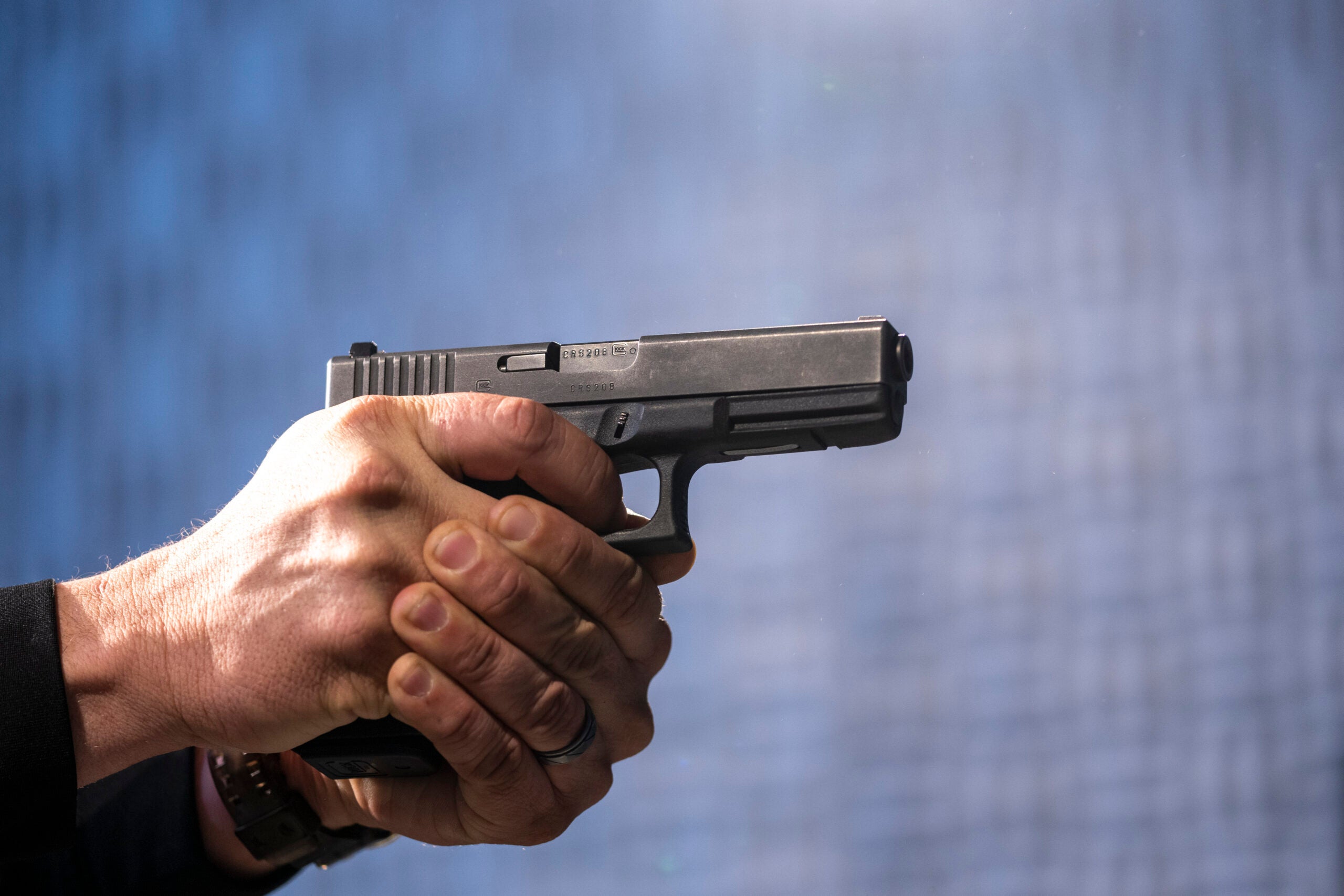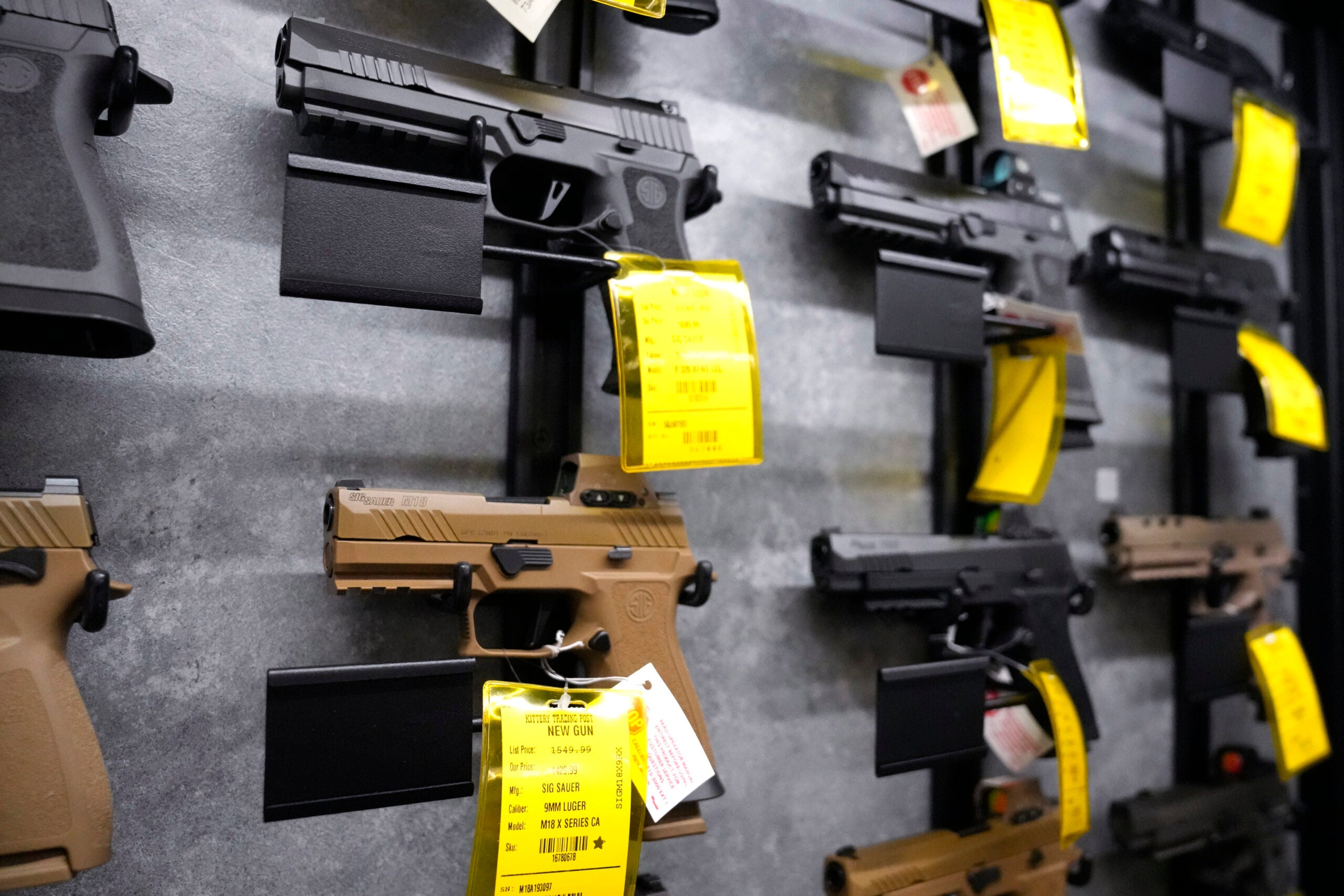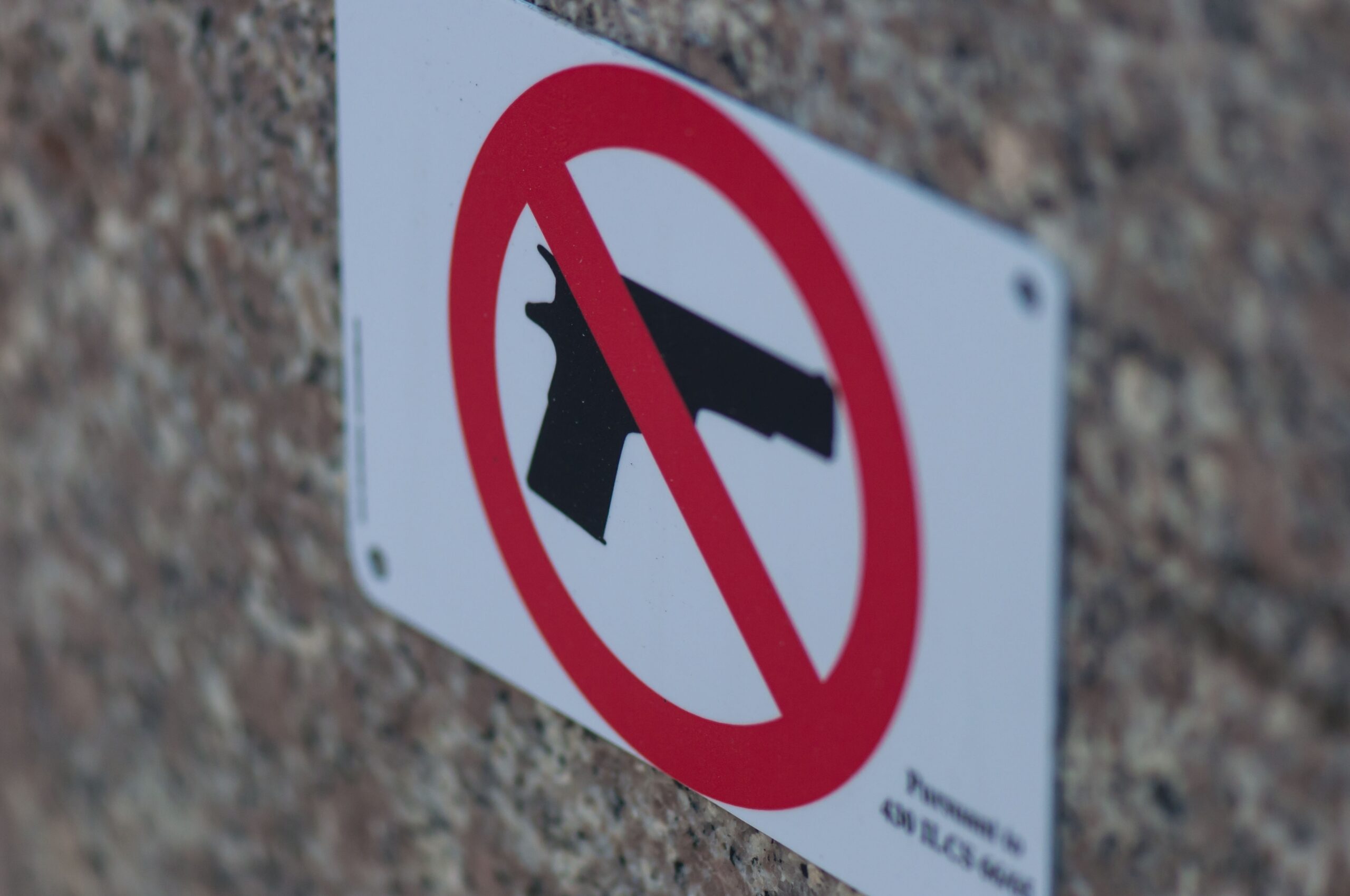A small plastic switch can transform some semi-automatic handguns into fully automatic machine guns, and Milwaukee police are finding more of these small, cheap and illegal switches every year.
While the total number of gunfire instances in Milwaukee is decreasing, automatic gunfire is making up a larger percentage of incidents, the Milwaukee Journal Sentinel reported recently.
Although gunfire data that the Milwaukee Police Department tracked via ShotSpotter technology showed a decrease in total “activations” from 2022 to 2023, the number of “full-auto activations” shot up from 563 to 869, which accounts for nearly 6 percent of all activations.
News with a little more humanity
WPR’s “Wisconsin Today” newsletter keeps you connected to the state you love without feeling overwhelmed. No paywall. No agenda. No corporate filter.
To learn more about gun modification trends, WPR’s “Wisconsin Today” spoke to Adam Winkler, a law professor at the University of California, Los Angeles who specializes in gun policy, American constitutional law and the U.S. Supreme Court.
“Once a firearm has been converted into a fully automatic firearm, it can fire a lot of rounds of ammunition in a very, very short time,” Winkler said. “So, an auto sear, or Glock switch as it’s often known, is a device that attaches to a Glock handgun and allows the firearm to fire continuously with the single pull of the trigger.”
Winkler explained why these switches are illegal and why some local and state governments are choosing to sue firearms manufacturer Glock over its guns’ compatibility with these switches.
The following was edited for clarity and brevity.
Rob Ferrett: Are auto sears becoming more common across the country?
Adam Winkler: There seems to be some data to support the idea that more and more of these auto seers are showing up at crime scenes and are being seized by the Bureau of Alcohol, Tobacco and Firearms. It appears that many of these are recent illegal imports from China. But there’s also the concern that these can be made with a 3D printer at home in just a matter of minutes.
RF: If I had an auto sear on its own, without it being attached to a gun, could I be charged with an automatic weapons violation?
AW: That’s right. Federal law says that any part that’s designed or intended solely to convert a firearm into a machine gun is illegal under federal law, and you can own one only if you go through a very extensive background check and you pay certain fees. But for an ordinary person, it is not allowed to own these devices.
It’s extremely difficult to enforce a law against possession of a small, easy to conceal item that is not very difficult to import illegally and to possess. We have laws that prohibit them, but they’re not really designed to prevent their importation. These laws are designed to punish people who don’t follow the law. It’s kind of like murder. We can’t really prevent people from committing murder, but we have laws on the books that will punish people if they commit murder, and we hope that punishment will discourage people from engaging in the kind of activity that we don’t want to see.
RF: The city of Chicago sued Glock for its failure to change its gun design so it is no longer compatible with these switches. Several state governments intend to sue Glock for the same reason. What do you think of that tactic?
AW: We do have a federal law that provides broad immunity for gunmakers, but there are some exceptions to that law. We’ve seen some active litigation in recent years trying to open up those exceptions and provide ways in which people and states can hold gunmakers liable for designing firearms that are especially dangerous. My understanding is that Glock has been introducing changes to the technology to prevent these Glock switches from being attached to their newly manufactured firearms.
RF: But that won’t apply to guns that have already been made, right?
AW: That’s right. And it’s always a problem with gun control in that we’re constantly trying to regulate problems after the firearms or devices have already gotten out there and become distributed. It’s a good reason for us to think that we need to be projecting into the future, thinking about the kinds of regulations that we’re going to need to prevent different kinds of devices from getting on the market in the first place.
RF: A Second Amendment rights lawyer in Wisconsin, Tom Grieve, told “Wisconsin Today” that the lawsuits against Glock are basically a wedge case intended to punish a kind of behavior they don’t like, which in this case is the production of firearms. What do you think of this perspective?
AW: It may be that some people are motivated to go after Glock because of a larger concern about gunmakers and a desire to put gunmakers out of business. If that’s their strategy, they’re destined to fail. We should take this whole effort as what it appears to be, which is people trying to get this dangerous device off the public streets.
RF: Do you think litigation around auto sears will prompt challenges to the Second Amendment?
AW: I think we’re likely to see litigation over these machine gun devices, but we are not likely to see the courts say that machine guns or auto seers are protected by the Second Amendment. Although the Supreme Court has been expanding the Second Amendment in recent years, I think that the courts will say that there’s a long history and tradition of banning dangerous and unusual weapons.
Wisconsin Public Radio, © Copyright 2025, Board of Regents of the University of Wisconsin System and Wisconsin Educational Communications Board.







